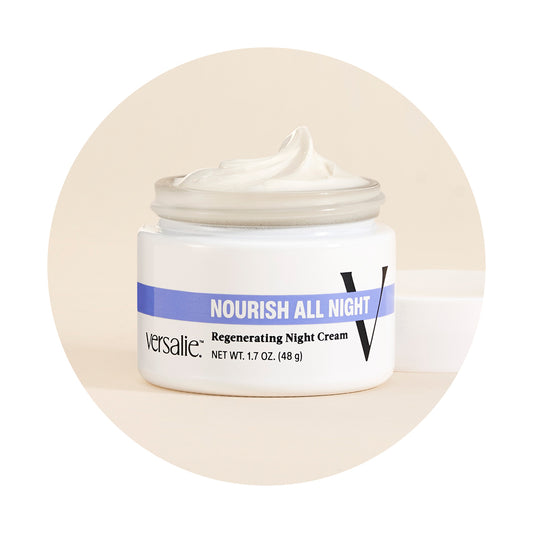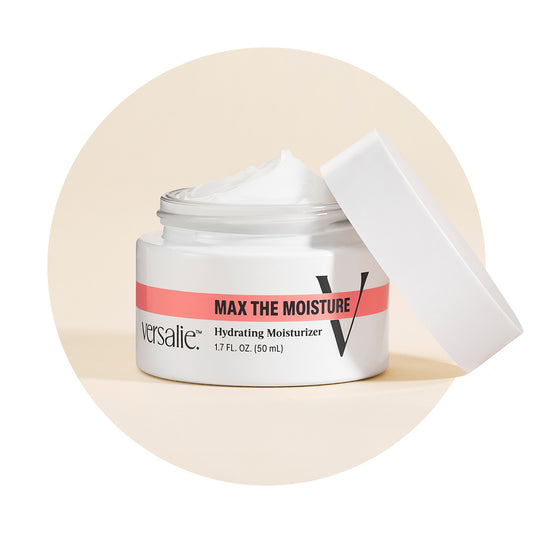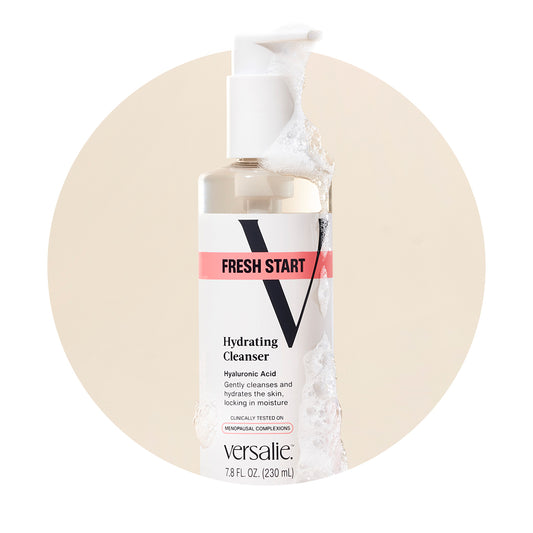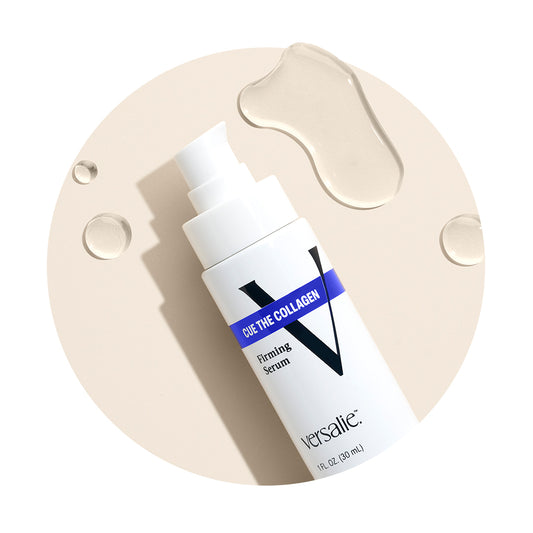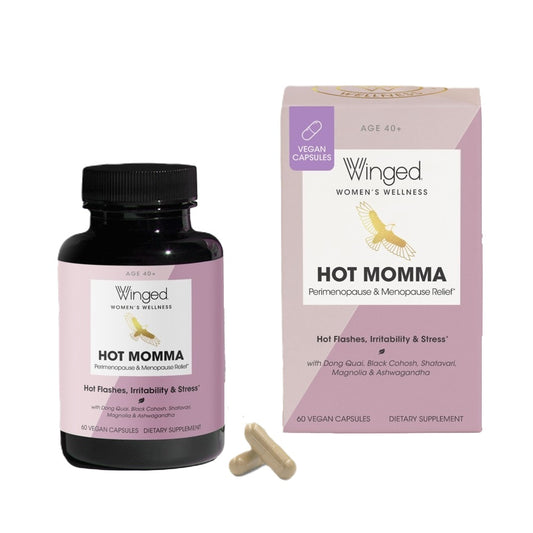For many people, hormone therapy can be a go-to treatment for menopause symptoms. And while it can benefit many, there are some people who choose not to take hormone therapy for medical or personal reasons. But there's good news! There are many non-hormonal options to help with menopause symptoms. These treatments can help you stay comfortable during menopause and keep your quality of life.
Live a healthy lifestyle
One of the best ways to manage menopause symptoms is to eat well, move more, sleep well, and lower stress. While these aren't easy to do consistently, in general, adopting healthy habits can do wonders for your overall health (and symptoms). So, what does this mean on a day-to-day basis? Let’s break it down.
- Eat well. Focus on a balanced diet full of fruits, vegetables, whole grains, low-fat dairy, omega-3 fatty acids, and lean proteins. This can help reduce weight gain and keep your heart healthy. Eating healthy foods can also help with menopause symptoms. It can also lower the chances of getting heart disease and diabetes. Studies have shown that high sugar intake, along with caffeine and alcohol, can trigger hot flashes, so it's good to avoid these foods as much as possible.
- Move more. Regular exercise can improve mood, reduce stress, and promote better sleep, all of which can help with the emotional challenges that come with experiencing menopause. Additionally, strength training and weight-bearing exercises can help maintain bone health. Aim for 150 minutes (about 2 and a half hours) of moderate aerobic activity and do at least 2 days of strength training exercise each week. Talk to a healthcare professional before starting or changing any exercise program.
- Sleep well. It’s common for sleep to suffer during menopause, so we know this can be a challenge. Many people struggle with quality sleep, as well as the amount of sleep they’re getting. As a result, it’s even more important to work hard to get enough sleep. Try to sleep for at least 7 hours each night. Make sure that you feel rested when you wake up. Sleep allows your body to rest, heal, and recharge. You may want to try sleep support supplements made with ingredients that can help you relax and fall asleep more easily.
- Lower stress. When you feel stressed, the level of the hormone cortisol increases. A higher cortisol level can make you feel less able to control your emotions. It can also make it harder for your body to manage symptoms like hot flashes and your overall mood. Doing calming activities like yoga, meditation, deep breathing exercises, and mindfulness can help you better manage stress and improve your overall wellbeing. You might also consider dietary supplements to help with stress support. Talk to your doctor about whether supplements are right for you.

Herbal remedies
There’s some evidence to suggest that some herbs may help relieve menopause symptoms. Below is a list of a few of those herbs and the symptoms they may benefit. There’s no high-quality data that shows these ingredients on their own can provide relief, but there is mixed data that some may have modest benefit.
- Lemon balm. This herb may be used to help with sleep issues and nervousness during menopause.
- Evening primrose oil. It has anti-inflammatory properties and may help reduce hot flashes.
- Red clover. This herbal remedy may be used to help with menopause symptoms, keep bones strong, and protect the heart and immune systems. Red clover has plant-based chemicals that mimic the effects of estrogen in the body.
- Soy. Foods with soy have plant compounds called phytoestrogens. These compounds are similar to estrogen in the body. Eating soy may help with menopause symptoms, keep bones strong, and protect the immune system.
Before you take any supplements, it’s a good idea to consult with a healthcare provider. Ask them any questions you have and find out if they’re safe for you to take.
Cognitive behavioral therapy (CBT)
Cognitive behavioral therapy, or CBT, is a form of psychotherapy that can help you reframe your thoughts. You can also learn coping strategies to deal with emotional and stressful situations. Research has shown that CBT may be an effective treatment for anxiety and depression related to menopause. It can also help with insomnia, mood swings, and emotional challenges related to symptoms. Be sure to talk to your healthcare provider about any emotional or mood symptoms you're experiencing.
Clinical hypnosis
Clinical hypnosis is a mind-body therapy that can help people enter a deeply relaxed state of alertness. Once there, a trained hypnotist works with the person using mental imagery and suggestions. Research has shown that clinical hypnosis may help with hot flashes by managing how temperatures are perceived and regulated in the brain.

Vaginal moisturizers and lubricants
Vaginal dryness is a painful symptom that's common during menopause. Usually, your vaginal lining is lubricated with fluid that helps keep it thick and elastic. When estrogen levels drop, the tissues in your vagina can become thin and dry. This can cause pain when you sit, exercise, pee, and have sex. You can use non-hormonal vaginal moisturizers and lubricants to provide relief and help make sex more comfortable.
Pelvic floor physical therapy and dilators
When estrogen levels drop, it can cause the vaginal walls to become dry, thin, weak, and less elastic. This can sometimes cause problems with bladder and bowel function, pelvic pain, or pelvic prolapse (when one or more organs in the pelvis slip down). Doing pelvic floor physical therapy is one way to manage these concerns. Talk to a licensed pelvic floor physical therapist to learn the correct exercises to perform. They may also use a dilator set (small to large) to help stretch the vagina and pelvic floor muscles. This can help prevent narrowing and improve overall flexibility.
Prescription medications
Several medications, available by prescription only, are available to help treat hot flashes. Please consult your healthcare provider to discuss if any of these may be right for you:
- Selective serotonin reuptake inhibitors (SSRIs) and serotonin-norepinephrine reuptake inhibitors (SNRIs) are often prescribed to treat depression and anxiety. They work by increasing the activity of certain brain chemicals known for their role in mood.
- Certain low-dose antidepressants have been shown to effectively treat hot flashes for people who don't already have mood or anxiety issues. They can also be helpful with depression and anxiety associated with the menopause transition.
- Non-hormonal prescription medication. There’s currently one other FDA-approved medication that addresses hot flashes without using hormones. This medication targets hot flashes in the part of the brain that controls body temperature by blocking a brain chemical called neurokinin B (NKB). Together with estrogen, NKB helps control body temperature. This becomes unbalanced as estrogen begins to drop during the menopause transition. This medication blocks the NKB receptor to help reduce the number and intensity of hot flashes.
- Two other non-hormonal medications are sometimes prescribed. They are oxybutynin, prescribed for overactive bladder, and gabapentin, prescribed to control epilepsy. Some medical providers may prescribe these as off-label options to help with hot flashes, if they find that these medications are the best option for you.
There are many non-hormonal options to help with menopause. They range from simple lifestyle changes to herbal treatments, talking to a therapist, and even some medications. This variety of options means you can find what might work best for you. Again, it’s important to discuss your treatment plan with a healthcare provider to make sure you’re choosing the best option for your unique menopause experience. If you don’t have a healthcare provider who can help you with menopause, consider setting up a virtual care visit to get a customized treatment plan.


